By Andrew Kydd

Is Ukraine destined for partition or even war? Powerful forces are driving the situation in that direction, and it is not clear that there is an alternative that all sides can agree on. In seizing Crimea, Putin has jumped through a window of opportunity. Windows of opportunity combine present temptations with future fears, and generate powerful incentives to act. To board up this window will take concerted action both within Ukraine and internationally.
Ukraine is roughly evenly divided between a nationalist, anti-Russian west and a Russophone pro-Russian east. In 1991, Leonid Kravchuk helped Boris Yeltsin break up the Soviet Union and led Ukraine’s first independent government. In 1994 he was defeated by Leonid Kuchma in a presidential election that was decided along regional lines; Kravchuk won the west and Kuchma the east. Kuchma won reelection in 1999 with much broader support, including from the western regions. In the 2004 election, Viktor Yanukovych, who was then prime minister, was declared the winner, but the results were contested. The resulting Orange Revolution brought greater democracy to Ukraine and shifted the balance to the west, but eventually discredited itself with corruption, mismanagement and incompetence. In 2010, Yanukovych ran again with support from the east and this time won a reasonably fair ballot, much to the dismay of the western Ukrainians. Their opposition was galvanized when, under Russian pressure, he walked away from an agreement with the EU, and the Maidan protest movement was born. That movement then succeeded in pushing him from power, shifting control back to western, nationalist Ukrainians. This time, things looked even worse for the eastern Ukrainians. Given their overthrow of an elected leader, the western forces seemed unconstrained by constitutional rules or democratic procedures. Given their immediate move to demote Russian as an official language, their anti-Russian agenda seemed clear as well.
Yanukovych’s overthrow therefore was a serious blow to Russian national interests. Russian speakers in the east might eventually be reduced to second-class citizens. Russia’s ability to continue to use the Black Sea naval port in Sevastopol was in jeopardy as well. Ukraine was heading to the West and might join the EU and NATO. Was there anything to be done?
As it so happened, there was. The revolution also weakened Ukraine, leaving it vulnerable to intervention. This presented a temptation to Putin to use force to secure a better outcome for Russia than an outright western Ukrainian victory. But why actually use force, why intervene? Why not just threaten to use force, and strike a deal with the new government on the issues of concern, such as protection for the eastern Russophones and indefinite basing rights for the Black Sea Fleet?
The problem with negotiations is that Ukraine’s weakness is temporary. Eventually the new regime will consolidate power and increase its ties to the West, possibly joining the EU or even NATO. At that point, intervention would be prohibitively risky and Russia would simply have to live with the loss of Ukraine. Therefore any deal struck now would some day be reneged upon by the Ukrainian regime. It would certainly want to, given its internal and international orientation. And it would eventually have the power to, given its consolidation and integration with the West.
This seems to leave Putin no choice but to intervene now and press his advantage to the point of peaceful partition, if the Ukrainians do not resist, or civil/international war if they do. Windows of opportunity are powerful things. When you combine demonstrated hostility, present weakness and future strength, the incentive to act can be overwhelming.
Is there anything that can be done to board up this window and prevent Putin from jumping all the way through? One strategy is to attempt to make the intervention so costly that Putin will eventually decide to accept the loss of Russia’s interests in Ukraine. Domestically, Ukrainians can resist the invasion, either peacefully or by fighting back and making a war of it. A lot will hinge on whether the Russian incursion is popular, or at least tolerated, in the Russophone areas. If it is not popular, the intervention may turn out to be much more costly than Putin anticipated, which may lead him to withdraw. Internationally, sanctions and diplomatic isolation are a first step, but these tools will take time to have an impact. Military action by the West appears to be off the table; even the many critics of the Obama administration are not suggesting the use of force. This is therefore a long-term strategy, and Putin is quickly establishing facts on the ground.
An alternative strategy is to attempt to provide Putin with credible guarantees for the future, so that the future-oriented incentive to take advantage of Ukraine’s present weakness is reduced. Can a negotiated deal that preserves Ukrainian territorial integrity while at the same time guaranteeing Russia’s interests be made to stick into the future? Putin must be persuaded that Ukrainian promises can be trusted despite the fact that they have the incentive and will have the power to break them. The usual way that governments are constrained in democratic systems is through constitutions and federal systems that empower minority veto players. A Ukrainian constitution that embodied a veto for the eastern regions on any move towards the West or any move to reorient Ukrainian security policy would in theory be attractive to Russia. Western Ukrainians would have to explain why they would abide by the new constitution when they failed to abide by the previous one. A further set of guarantees might be provided by the international community in the form of an agreement to neutralize Ukraine, that is, to reverse the 2008 decision to eventually offer it NATO membership.
All this smacks of appeasement of course, but it is appeasement back to a status quo that for 20 post-Cold War years was deemed basically tolerable, certainly internationally and by many inside Ukraine. There may be no going back to that option, but the alternative is a costly confrontation with an uncertain outcome.

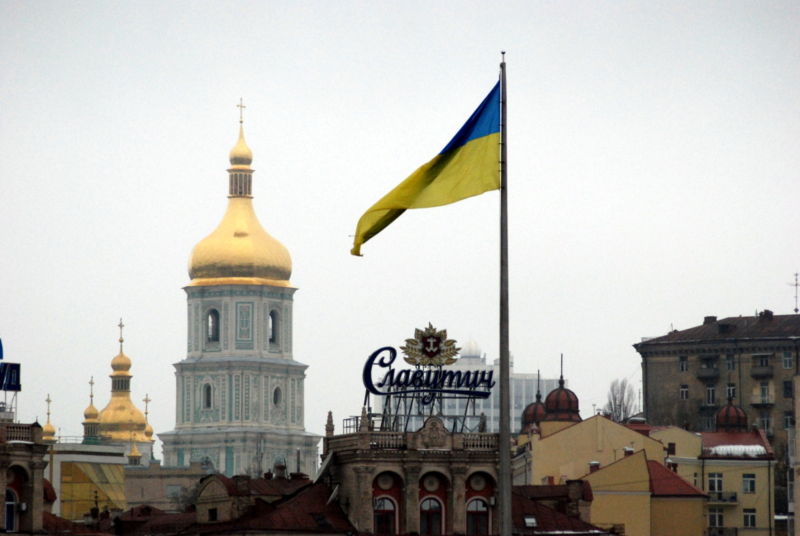

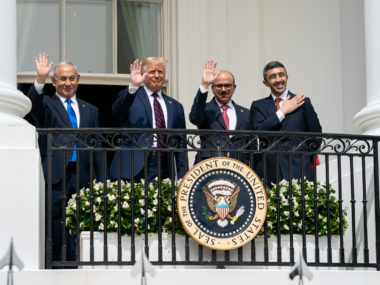
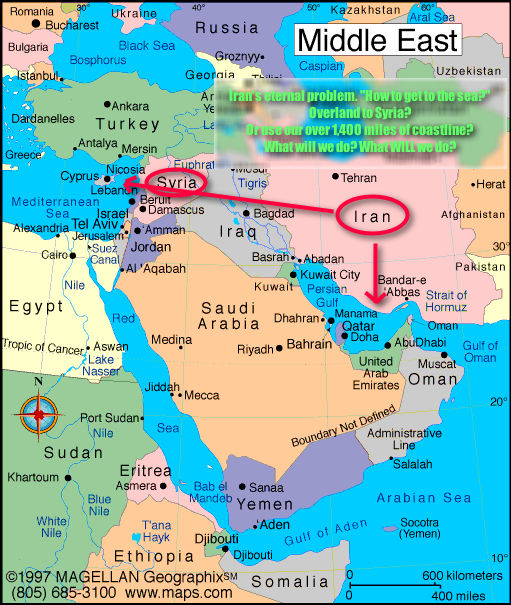
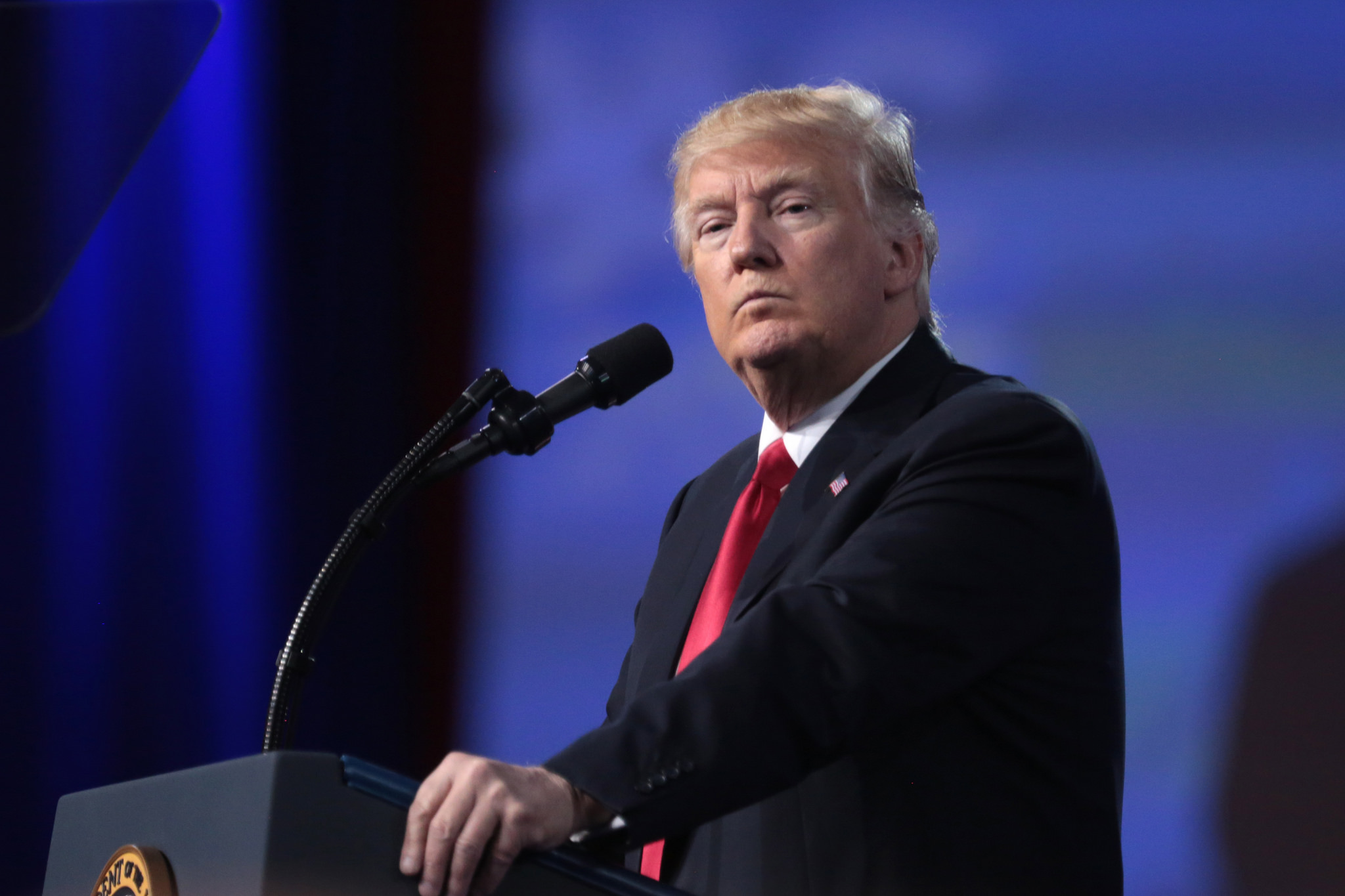
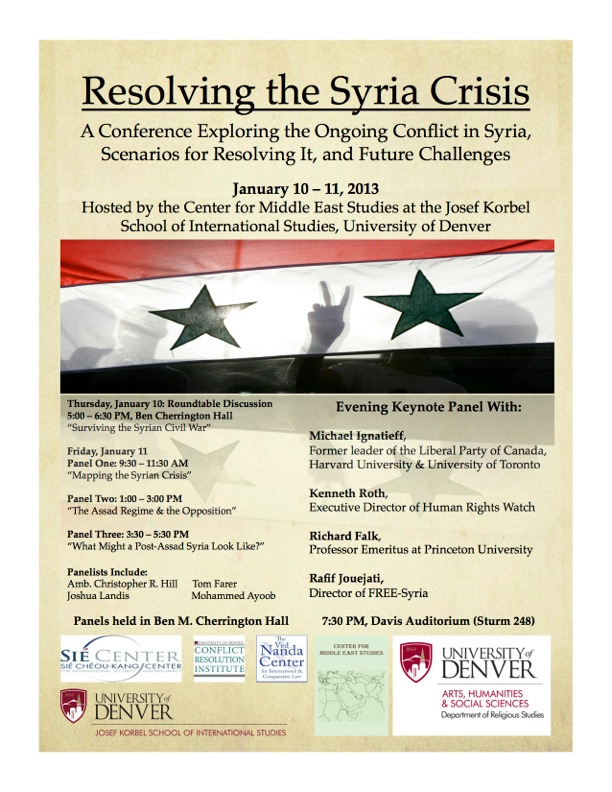
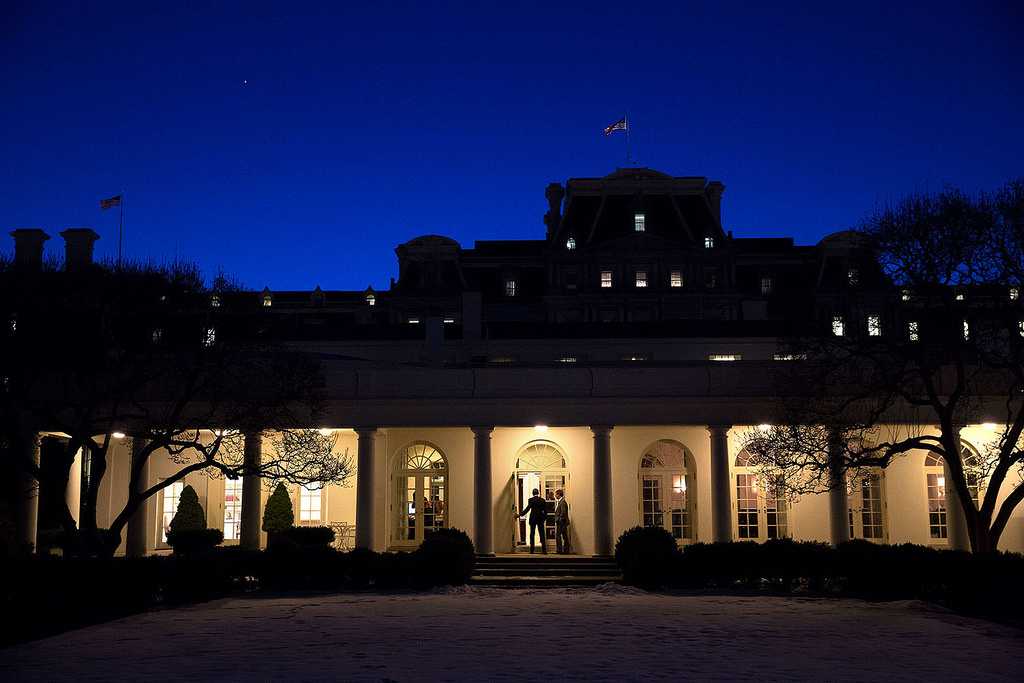
15 comments
Putin’s ‘invasion’ simply ensures that Russia will be taken seriously. I doubt very much that Putin is trying to win a Ukrainian popularity contest, and I doubt if, being at least semi-rational, he trusts the US and EU enough to be interested in their ‘guarantees’ and ‘assurances’. As big dog of Russia, he can hardly allow a pro-Western putsch to take place in Kyiv without doing something about it. I really wonder what the people who started this particular play thought was going to happen. The stand-down will be to go back to the previous position, which will include a non-aligned Ukraine.
For the US, deciding to stop trying to dominate and control the world would not be ‘appeasement’, it would be common sense. But unfortunately its ruling class continues to seem feckless and disconnected. They should stick to printing and piling up Monopoly money.
Agreed on all points. As I’ve said many times, I hope it wasn’t our (US) guys who came up with that idea in Kiev, because whoever thought it would be a good idea was deluded. I’m not sure about moving back to a non-aligned Ukraine myself. I see Crimea becoming autonomous (i.e., Russian) and Ukraine going EU if anything. If they remain “non-aligned” they’ll turn back to Russia.
As a country we should focus on protecting what we can instead of pretending to do what we can’t.
Whereas Russia openly sparking a putsch in Kyrgyzstan that leads to the deaths of hundreds of Uzbeks and tens of thousands of refugees while Russia refuses Kyrgyzstan’s requests for soldiers to keep the peace is just fine. Makes perfect sense. If you live in a world where America always = Bad and any other nation always = good.
Putin, the bad guy, doing bad things is not remarkable.
“The problem with negotiations is that Ukraine’s weakness is temporary. Eventually the new regime will consolidate power and increase its ties to the West, possibly joining the EU or even NATO. At that point, intervention would be prohibitively risky and Russia would simply have to live with the loss of Ukraine. Therefore any deal struck now would some day be reneged upon by the Ukrainian regime. It would certainly want to, given its internal and international orientation. And it would eventually have the power to, given its consolidation and integration with the West.”
I’m sorry but this seems incredibly unlikely to me. The odds of Ukraine joining either NATO or the EU in the next ten years seemed incredibly unlikely (and I refuse to make political predictions further ahead than that) even before Russia’s annexation of Crimea and Ukraine was really held by oligarchs. Obviously there’s an east/west divide in Ukraine, but given Ukraine’s recent history all Putin would have to do would be to wait a year or two at most, then use a bribe of aid money.
Perhaps Putin felt that the real threat was at home, and if Russian military and intelligence didn’t think he was strong enough he’d face similar protests in Moscow.
I agree with you that both are very unlikely, but I idly wonder which is less likely.
The EU has stringent criteria for joining, and it’s hard to see what Ukrainian membership offers Brussels. But NATO simultaneously has greater reason to not court Ukraine (leaving aside the fact that most Ukrainians seemed not to want to join last time it was discussed) and a more politicized entry process. The non-credibility of a NATO commitment to defend Ukraine would threaten the entire alliance, but its not difficult to imagine a renewed push for Georgian and Ukrainian NATO membership as a way of “getting back” at Russia.
I don’t think the U.S. can afford any more splits with European NATO members and they certainly don’t want to be including Ukraine or Georgia*. And I’m pretty sure that NATO has a policy that all members must have their borders settled. That pretty much disqualifies Ukraine and Georgia alone.
In any case, I don’t think there are many ways that anything can actually be done by the U.S. and Western Europe. Visa holdups and sanctions on a few officials are really just for show. I’m of the opinion that the Russian government isn’t so united and strong as other people suggest, but I can’t see this changing Russian opinion on something as emotional as Crimea and Western Europe hasn’t shown any willingness to go further.
The most I can think of would be some kind of big initiative for the Visegrad group, and its hard to think what that could be.
*I’m starting to think that membership in NATO is similar to peackeeping on the Golan Heights. Everyone’s all for it, so long as they aren’t expected to do anything.
NATO does have the no border disputes requirement, but off the top of my head I can’t recall how advocates of Georgian membership proposed to get around that. I hope to read Steve Saideman’s book soon, which I’m sure goes into this a bit more.
I’m actually a fairly big proponent of the historical NATO expansion into the former USSR on the basis that the commitment to defend, say, the Baltic States is credible in a way it would not be for the western or southern former SSRs, and that if Russia thinks Estonia, Latvia, and Lithuania’s membership is so insulting it should probably stop invading its neighbors, rather than expecting the West to cater to it. But I do hope this crisis reminds people that NATO membership is a real thing with real potential costs and obligations, and it stops all talk of further expansion.
That was supposed to be a reply to Grant.
The biggest question with NATO is, what do we want to do with it?
For almost its entire existence it was an alliance created out of fear of the massive post-World War II Soviet Union military. Then the Soviet Union collapsed and, as Stephen Walt has pointed out, it hasn’t had such a strong reason to exist. In the 1990s it expanded, in my opinion a mix of doing so because it could, because it could encourage democratic consolidation in the new nations and because it was an opportunity for the newly independent nations to gain the security of NATO*.
But in the 21st century, what are we going to do with it? The most obvious answer might seem that in light of Russia’s de facto (and soon de jure) annexation of Crimea NATO is needed for European security, but European reactions have been very mild and Western Europe has been enjoying peace and being able to rely on American military to make up for lower European defense spending. Are European states willing to maintain a meaningful NATO?
*In a way I think those smaller nations seeking the EU and NATO out of a desire for security from Russia actually had a better understanding of the situation. So long as Russia continues to exist, much like China and America, it will always have the potential to be powerful. So the only realistic politics open to small nations in its borders would either be strongly pro-Russian politics nearly to the point of being annexed, or strong political ties to the West.
I think both the EU and NATO’s expansion is partially due to them building the institutional machinery of expansion and then having no way to turn it off, even when further expansion no longer makes sense.
And given that both France and the UK seem to value expeditionary ability over conventional ground forces in an era when they can’t have both, I am unsure if Europe is willing to maintain a meaningful NATO, given that its core mission is a land-based one.
Reblogged this on Half Glass of Water and commented:
To continue the theme of Ukraine for the day…Check out this post from Political Violence @ a Glance
Excellent piece. Would like to hear more of the Kiev Regime’s components: Svoboda, Right Sector, and Fatherland Party. Rabbis are urging Jews to leave Ukraine as attacks on Jewish Houses of Worship are ongoing. Does not bode well for a new Constitution or the social contract that is the backbone of a healthy society!!